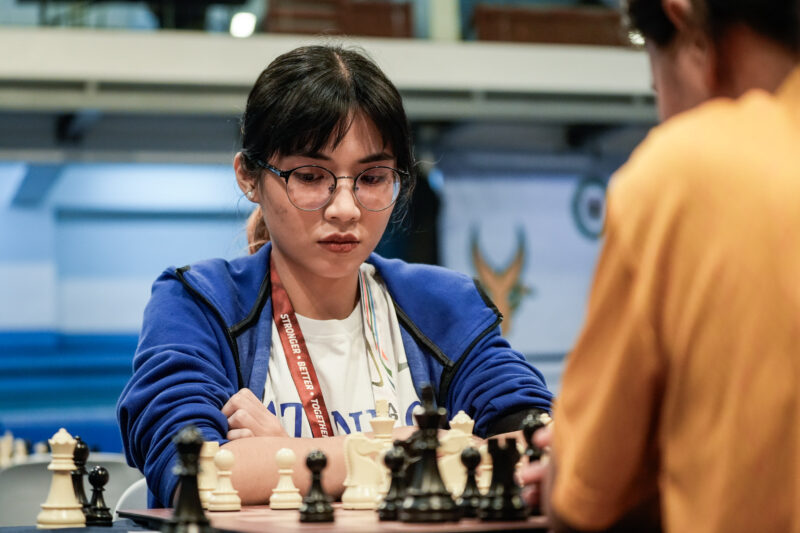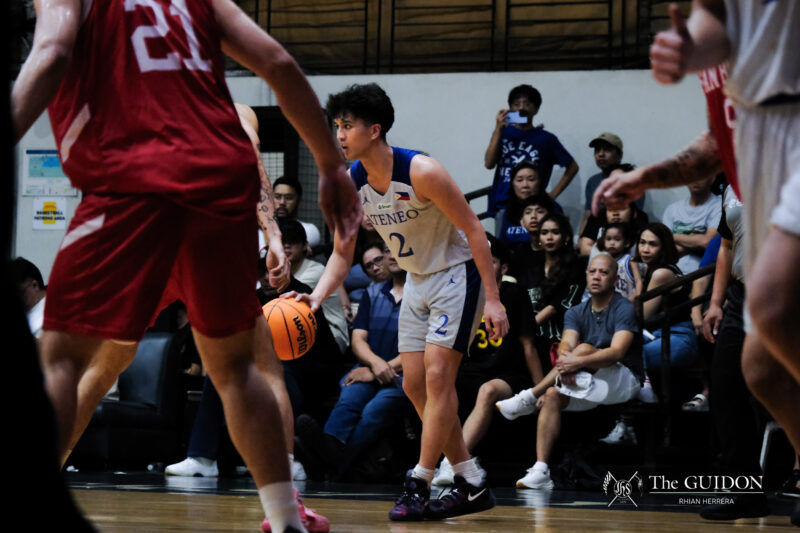There are only a handful of times when students of any major or background can truly sympathize with and relate to one another. One such instance happens every semester, in a period when thousands of students go through a rigorous string of exams and requirements that conveniently coincide with one another, appropriately dubbed “hell weeks.”
Exaggerations aside, most people get through the gauntlet of tests and projects just fine. However, it is undeniable that these hell weeks take a major toll on even the brightest and most responsible students, and some students even suffer from its effects long after the period is over.
The fact of the matter is that heavy academic and even extracurricular workload can ultimately be detrimental to any student’s mental and emotional well-being. Though this may seem like an obvious insight, recent increases in the complaints and outcries about this issue might indicate that the problem is a lot larger than it may seem.
Diagnosing the problem
Given how widespread this problem is throughout the university, systematic efforts on the administration’s part may prove more effective in dealing with it. Director of the Loyola Schools Office of Guidance and Counseling Gary Faustino expressed that he is very much aware of the issue, citing from experience that students having problems dealing with intense workloads has been going on for quite some time.
“Things come to a head when the deadlines from the acads, the exams, and the org activities all coincide,” Faustino says. The stress generated by all of these different forces create an overwhelming experience that he calls the “perfect storm,” which affects even the most resilient students. Hell weeks are nothing new to the student population and for as long as these have been around, so have the heavy workloads.
Faustino states that there are several factors at play to explain why students go through this struggle. Pressure from parents, society, and even peers all make significant contributions to the fostering of the culture of overworking that is now rampant among teens and young adults. This leads them to take on an unreasonable amount of both academic and extracurricular work, often to the detriment of their physical and mental health.
Development Studies senior Coeli Fortun says that the pressure that drives mental stress is not necessarily negatively motivated. She says this stress could be rooted in a genuine sense of gratitude and service, but also notes that some students “just drown in the sea of our obligations, suffocated by the anxiety that comes along with the pressure to do well.”
Dr. Gilda Dans-Lopez, the Director for Clinical and Community Services of the Ateneo Bulatao Center for Psychological Services echoes these sentiments. Based on feedback from different sectors, the most prominent factors at play include “a combination of…study workload, commitment to organizations, expectations of parents [and] teachers, meeting deadlines, [and the like].”
Ultimately, these factors all force the students to form unhealthy habits. Especially evident during hell weeks, a lot of students suffer from a combination of severe lack of sleep, food deprivation from skipping important meals, and even overconsumption of junk foods. Students also get used to blaming themselves for everything bad that happens, saying that they are not cut out to meet any expectations. All of these “[are indicators] that their mental health will suffer,” says Dans-Lopez, and it only gets worse as the workload gets heavier.
The question of magis
However, there are certain mindsets that have also had a hand in the escalation of this issue. A prime suspect in this regard is the concept of magis, which some students have come to criticize.
For Environmental Science junior Niels Nable, the concept of “magis” has become more about the self, which has altered the Ignatian value of doing more for others. “Since most of us accept the definition of ‘magis’ as ‘to do more’ or ‘to be more,’ it’s widely used to justify why it is normal for us to accept work and enter commitments that are beyond our control and capacity. I know some students who do so in order to beef up their CVs and resumes, in the hope of making themselves more hireable after graduation,” he says.
Faustino also believes that the concept of excellence or “doing more” has been misconstrued by some to mean things that are a little less than ideal. “[Magis] has become more about material benefits and prestige rather than learning and growing as a person,” Faustino says. It is for this reason that some students tend to overwork, as they put a premium on racking up awards and activities that can be added to resumes. While these are still important, Faustino stresses that magis as “the process (the learning)…the day-to-day decisions for growth, and helping others” is just as important to take into consideration.
Fortun, however, emphasizes that this misinterpretation of magis is not rooted in the self, but rather is oriented towards the service of others: “I think the culture of overwork really stems from an Atenean’s pressure to do well, not just for themselves, but for their parents, professors, friends, orgmates, and even for society,” she says.
Nable also notes that the tendency for students to venture into the corporate world after graduation has caused a “culture of unhealthy competition” since private companies are selective of their employees. “We’re also gradually forgetting that the school isn’t a factory of laborers, but it is actually a place where we must value knowledge and wisdom over ‘hireability,’” he says.
Evidently, the issue at hand is more than just a personal one. Though the effect is indirect, pressure from societal norms are also just as impactful on the well-being of students as their internal struggles, and it will take a lot of effort from different parties to resolve such a problem.
Seeking support
The Guidance Office has many different projects and support systems that seek to address this issue. Faustino notes that one of the reasons students may be hesitant about the Guidance Office is because of the image of “traditional” guidance and counseling, and the fear that the office would disclose personal information to the student’s parents.
He also says that the office’s policy is to always respects student confidentiality: “What these students don’t realize, at least in the Ateneo, is in college—by virtue of their age and development stage—we uphold the confidentiality of the counseling session sacred unless (and this is both lawful and ethical) unless there is threat to life of self and of others.”
In this regard, the Guidance Office takes on the duties of monitoring and following up on any concern that students may have when it comes to their well-being by holding counseling sessions.
Nable argues that the administration should consider reducing unnecessarily heavily workload. He mentions that foreign students have less workload but are still higher in terms of their university rankings. “It’s not about the quantity but rather the quality of education. The health of the students must not be sacrificed,” he says.
Fortun, however, says that the problem can also be tackled in the simplest ways. “Say for example, smiling at others, whether these be your friends, or strangers in passing. Imagine yourself having a bad day, rushing to class, then you bump into someone who is smiling directly at you. Isn’t that comforting?” she says.
Despite the seeming lack of trust that some students have towards the office, the Guidance Office is implementing a number of different programs in order to help tackle this issue. For one, Faustino says that the office is “reverting to more collaborative efforts” with the Loyola Schools Integrated Ateneo Formation (InAF) Program “to include psychological methods in formation.”
He also mentions other creative approaches to tackling the problem. He cites the university’s animal therapy program, which the office seeks to expand further after a successful year. “The intention is to set up Animal Assisted Therapies (dogs) that can assist us in our work. This includes a probable counselor who will roam around with a resident canine, not for bomb sniffing but for petting,” he says. The soup kitchen that was set up during past hell weeks is another initiative and it was reasonably helpful for the people who took part in it, as expressed by some students online.
On the side of the Bulatao Center, Dans-Lopez likewise states that they have been formulating preventive workshops to help address the issue. There are currently four variations, including mindfulness-based stress reduction, moving with peers, internal “civil wars” and moving forward, each designed to handle different concerns about one’s well-being.
“We did run it on a pilot, and I think it went very well, so it’s just a matter of seeing how we could run it again with the support of the administration and how it coincides with all the administrative programs,” Dans-Lopez emphasizes. With enough testing, feedback, and support, she hopes that these workshops will be fully functional and available to all in the near future.
Towards greater care
In the end, it’s important to note that one’s mental health should not be taken lightly, and the growing concern for many different issues with regards to the students’ well-being indicates that things are only getting worse by the minute. Even something as seemingly natural as a heavy academic or extracurricular workload can be a big source of stress and while students are obliged to study and maintain good grades, it is clear that this should not come at the expense of one’s health.
It is evident that more and more people are becoming aware of this issue, but what is needed at this point in time is not simply attention but also concrete, collective efforts from everyone, and not just from those involved. Workload-related stress is just as much a problem for teachers and staff as it is for students, and without everyone on board to help handle the situation, it will continue being a problem for many more years to come.
What do you think about this story? Send your comments and suggestions here: tgdn.co/2ZqqodZ







